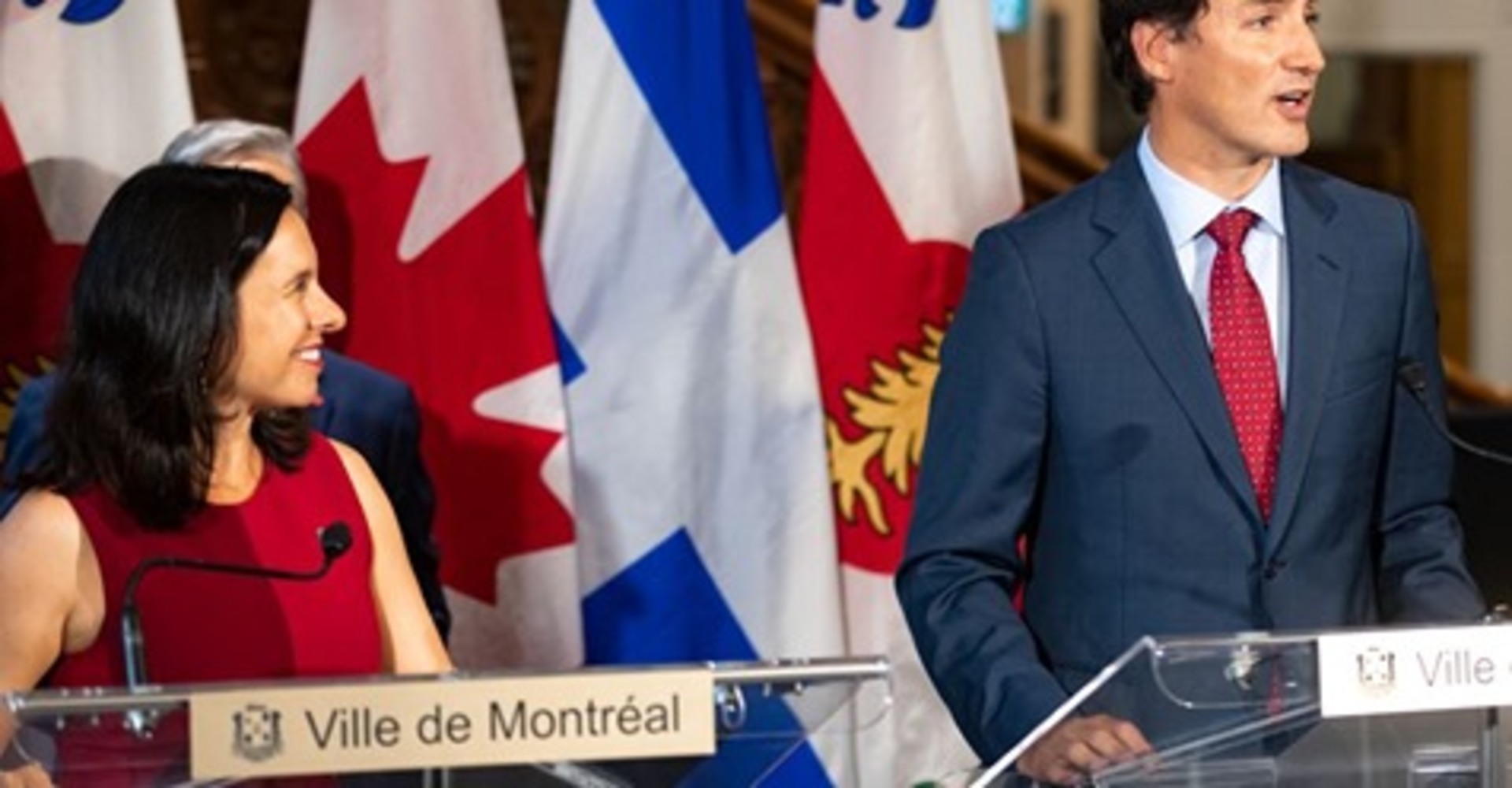Ottawa pledges $50 million for Montreal’s Grand Parc de l’Ouest!
22 Aug 2019
Prime Minister Justin Trudeau pledged up to $50 million for infrastructure work for Montreal’s future Grand Parc de l’Ouest on Wednesday, hailing the project as part of a strategy to help ”Canadians adapt to the effects of the climate crisis, while building stronger, more resilient communities.”
“This is an example of concrete leadership on climate change while protecting biodiversity and supporting communities that are facing more and more extreme weather events,” Trudeau said at a joint press conference at Montreal City Hall with Mayor Valérie Plante.
A beaming Plante thanked the prime minister for the commitment to the 3,000-hectare green space, which will be Canada’s largest urban park.
Plante said the infrastructure work, which includes enhancement of a natural drainage basin and upgrading of storm sewers, is a necessary first step for the creation of the park, which will include 1,600 hectares of newly protected area.
The $50-million federal contribution is part of a $125-million budget for preliminary work on the park, for which the city will provide the remaining $75 million. The federal funds will be spent on the protection and enhancement of natural wetlands and upgrading of storm sewers to prevent flood waters from backing up in the areas around Pierrefonds Blvd., Gouin Blvd., Jacques-Bizard Blvd. and Rive-Boisée Rd. The $125-million initial budget also covers mapping, public consultations and land acquisition, Plante said.
Trudeau said the contribution would come from a $2-billion, 10-year federal infrastructure fund set up in 2017 to help communities mitigate and adapt to the effects of climate change.
The severe floods of 2017 and 2019 proved the need for projects like the nature park to help cities cope with more extreme weather, said François-Philippe Champagne, the federal minister of Infrastructure and Communities.
Plante said that beyond the $125-million budget to lay the groundwork for the future park, she had no estimates of how much the vast green space will cost in the long run.
Prime Minister Justin Trudeau and Montreal Mayor Valérie Plante are seen at a press conference at Montreal City Hall on Wednesday, Aug. 21, 2019, where Trudeau announced Ottawa is pledging $50 million for Montreal’s Grand Parc de l’Ouest. DAVE SIDAWAY / MONTREAL GAZETTE
Covering an area eight times larger than New York City’s Central Park, it will take at least 10 years to bring to fruition and involve partners like McGill University and John Abbott College, which already own part of the territory, she said.
“It’s a vision for the future and I’m happy that Montrealers believe in this vision,” she said.
Plante reaffirmed that there is no chance a housing project will be allowed on any part of the territory.
“It will be a park,” she said.
She also confirmed the city will meet three developers who served notice Friday that they intend to sue for “hundreds of millions of dollars” in damages unless Montreal backs down on its intention to prevent them from building a 5,500- to 6,000-unit housing development on part of the territory.
